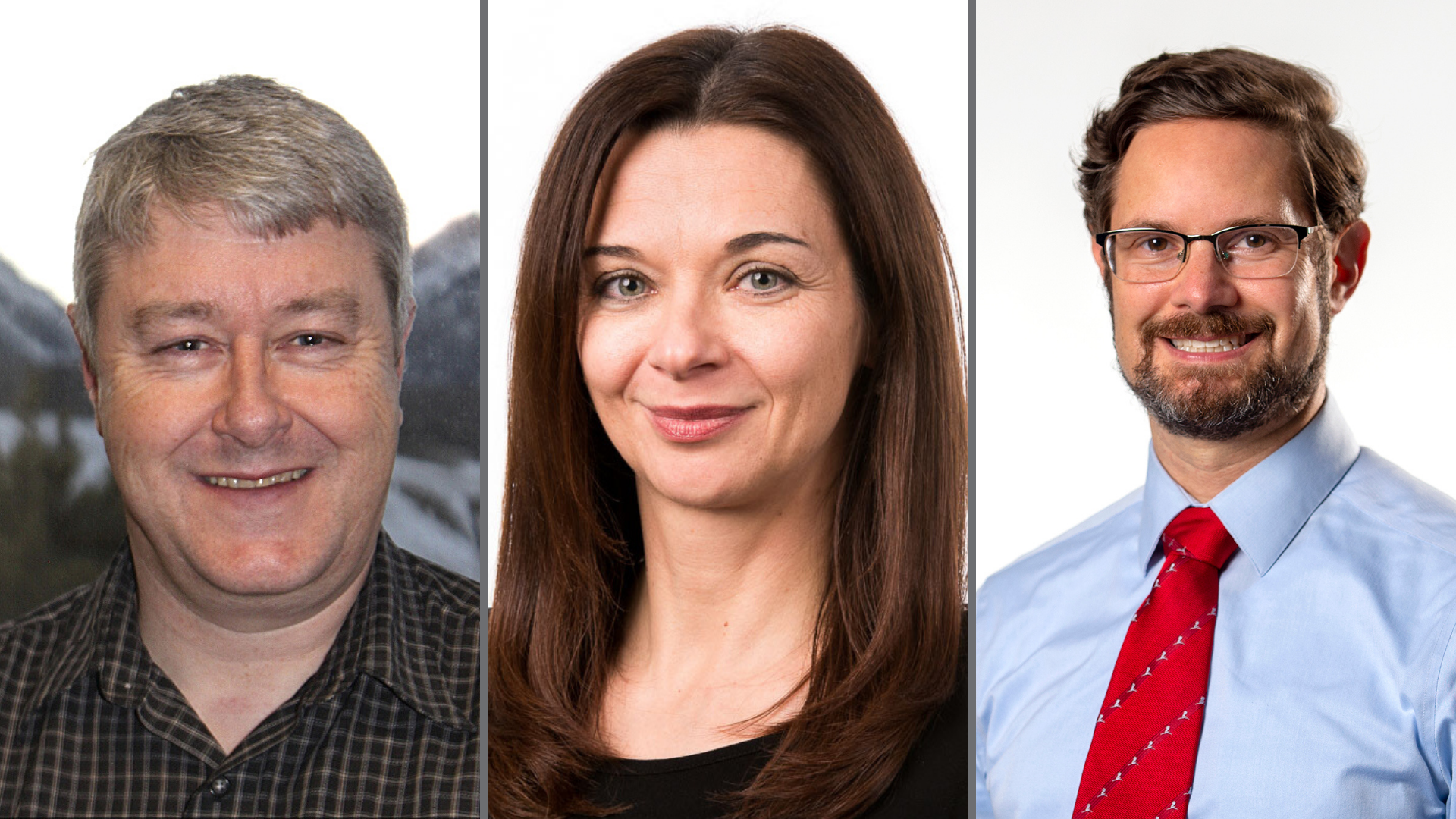Q&A with Keystone Fellow & 2025 Organoids meeting Organizer, Dr. Quinton Smith
Dr. Quinton Smith is a chemical engineer wearing a biologist’s hat. His lab at the University of California, Irvine, works on lifelike human organ models or “miniature avatars of human tissues,” according to Dr. Smith. Their goal is to generate lab-grown versions of human organs that are so accurate they can be used to test the impact of drugs outside of the body and study the earliest stages of human development.
For years, Dr. Smith’s work has straddled scientific disciplines, combining traditional engineering methods and biological principles to drive innovation. As a co-organizer of the Keystone Symposia, Organoids: Engineering Innovative Approaches for Basic and Translational Insight, Dr. Smith worked with Drs. Matthias Lutolf and Kelly R. Stevens to plan a conference that positions biologists and engineers side by side in the program and at the dinner table. Keystone Symposia meetings are known for this kind of interdisciplinary mixing, designed to inspire unorthodox research collaborations that bring new scientific perspectives and insights to light. Dr. Smith hopes this meeting will generate therapeutic advances with lifesaving potential.

Dr. Smith studied chemical engineering at the University of New Mexico and received his PhD from Johns Hopkins University in 2017. After joining the faculty at Irvine, Dr. Smith became a Keystone Fellow in 2022 and credits the professional development and mentorship program with helping to springboard his recent success.
In 2023, the Pew Foundation honored Smith as a scholar in biomedical sciences for his work on placental development and Popular Science listed him as one of 10 early career scientists on the cusp of changing the world. We sat down with Dr. Smith via Zoom to hear more about his journey.
You have come a long way since you were a Keystone Fellow just a few years ago. Can you take us back to the beginning and tell us about how you were introduced to Keystone Symposia?
I had heard about the Keystone Symposia conferences, but as a graduate student I didn’t have the opportunity to attend. My graduate advisor recommended that I apply for the Keystone Fellows program to get a fresh spin on scientific conferences.
One aspect of Keystone Symposia that I’ve come to really enjoy is the broad representation—not just academic, but geographic as well—which I hadn’t seen at other conferences. There’s also an emphasis on industry collaboration, which I think is super unique and provides insight into how advances translate into better patient outcomes.
How has the Keystone Fellows program benefited you?
One of the first things I did as a Keystone Fellow was attend several virtual workshops on career progression hosted by folks from industry and academia, which isn’t always available to people starting out. There are a lot of moving parts and it was really nice to have support from a community cohort—you kind of become part of this Keystone family.
We also got to attend the Scientific Advisory Board meeting and listen to experts in different fields discuss gaps in existing technologies or knowledge of a particular disease and brainstorm ways to address those at a meeting.
It was transformative—I hadn’t really seen an organizing committee in action at that scale making a concerted effort to close those gaps and lead the field. I think the conferences speak for themselves in terms of how impactful they are.
How did the Keystone Fellows experience shape the work happening in your lab currently?
Chemical engineering is an old field—it’s a very structured pathway. So, I’ve been thinking about my training from that perspective, but I’ve always been interested in biology, and that is what my lab does now. In the Scientific Advisory Board meetings and during conversations with my mentor, I learned how these meetings highlight basic biological processes, which was really beneficial to my lab.
I was immersed in a community that has a different perspective than traditional biomedical engineers do.
When I attended the Keystone Organoids conference in February 2023 and saw these emerging organoid technologies for basic human development—it really heightened my interest in the placenta. It was amazing to see how far the field has come and it inspired me to push the boundaries of stem cell technology. My Keystone mentor was a valuable resource for me while I was applying for the Pew Foundation award, and I don’t know if I would have gotten it without her support.

Image credit: Dr. Quinton Smith's Lab Page
One of your current projects explores how organoid technology can help scientists understand and treat preeclampsia-- did the 2023 meeting inspire the work?
I had some ideas about it when I started my faculty position at Irvine in 2021, but I didn’t have access to the nexus of people Keystone provided. Being able to talk to experts in early embryo models, for example, strengthened my understanding and spurred unexpected developments. It helped me refine the research plans.
The Organoids meeting you are co-organizing is coming up in May. What are your goals for the conference this year?
My goal for the meeting is to break down the barrier between biologists and engineers because I think we lack spaces that foster interdisciplinary conversation.
There are chemists that can shine a light on a material to make it soften or stiffen in real-time, matching, for example, fibrosis. And engineers – that are coming to the conference – can print 3D organoids and blood vessels in any configuration. We have these amazing engineering tools and on the other hand, people who are strictly doing cell biology, but this is an opportunity to bring them together. That is what I’m most excited about.
What is it like to organize a Keystone Symposia conference?
Overall, organizing a conference of this magnitude is exciting and has some degree of pressure. After the initial invitation to organize, I reached out to Kelly Stevens at the University of Washington in Seattle, who has done a lot of amazing work engineering tissue microenvironments for regeneration and Matthias Lutolf, the other organizer, is a renowned professor at the EPFL who is known for reverse engineering tissues. We’ve been working together for a little over a year to curate this program, bring people together and make sure the meeting covers key objectives to move the field forward. It's rare to have the opportunity to contrive such a meeting, and I am honored to be a thought leader for the Keystone Symposia.
What advice would you give early career researchers who are in the position you were a few years ago?
There’s a lot of room and growth in science. I think putting yourself out there and being exposed to new fields or things that you’re not comfortable with can spur innovation—the Keystone Symposia meetings did that for me.
And for potential fellows, I think sometimes you slip into this grind, especially early in your career, where you’re trying to get papers published, you have to teach, you have all these different things going on. But this is such a unique opportunity to get behind the scenes, learn about emerging fields and take a time out. I think if I’d just stayed in my office and didn’t try for this opportunity, I don’t know where I would be now.
Talk more with Quinton at the Organoids Keystone Symposia!
Help drive interdisciplinary advances between biologists & engineers
Meet the Author

Gillian Dohrn
Related news
Keypoint Newsletter: AI in Biomedicine Virtual Meeting
AI and Machine learning are transforming biomedical research at an astounding pace, enabling...
November Keystone Symposia Fellow's Spotlight on Dr. Novalia Pishesha
Our November Fellow’s Spotlight showcases Dr. Novalia Pishesha, an assistant professor of...


.png?width=180&height=180&name=Neil%20Henderson%20Banner%2025F4%20(9).png)


.png)
